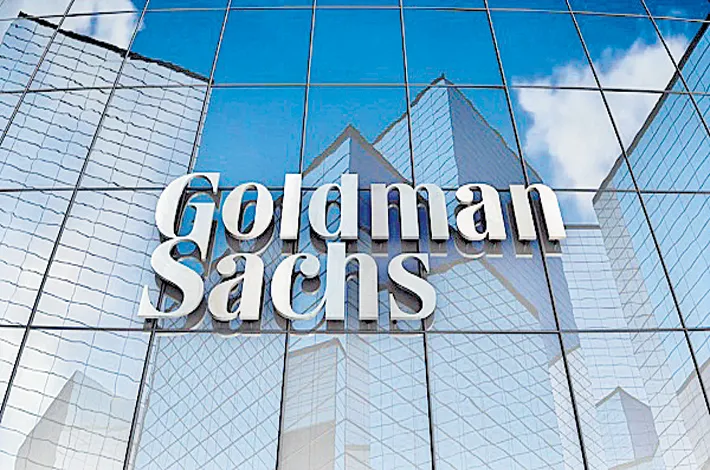India’s $3.3 Billion Bank Stake Sale: Goldman Sachs appointment raises eyebrows
29-08-2025 12:21:06 AM

Hema Singuluri | hyderabad :
The Indian government has appointed Goldman Sachs as the sole advisor for a $3.3 billion stake sale in four public sector banks (PSBs): Central Bank of India, Indian Overseas Bank, Punjab & Sind Bank and UCO Bank. The decision announced on 25th August 2025, is intended for improving efficiency in banking sector and reducing state ownership. However, this move has sparked both intrigue and skepticism, igniting fierce debate about the whole process and the interests it serves on the choice of Goldman Sachs, a Wall Street titan with a checkered history.
Although it is aimed at reducing the government’s role and improving the banking system, this stake sale trusting such a sensitive transaction to a firm is triggering criticism and suspicion due to its controversial track record and the sensitive nature of privatization. This planned stake sale coincides with PM Narendra Modi’s agenda of privatization as India's public sector banks have struggled so far by high non-performing assets (NPAs), and bureaucratic inertia. However, the government plans congregate potential investors, compete with HDFC Bank and ICICI Bank and ensure smooth execution.
Goldman Sachs has a turbulent history of emphasizing profits over ethics. For instance, in 2010, this firm involved in a scandal with loss of $550 million charged by the U.S. Securities and Exchange Commission for foul play. Despite this, it assisted billions in illicit transactions resulting $2.9 billion penalty in Malaysia. Such instances are raising serious doubts among the critics on the firm serving India’s interests.
The comparison of Goldman Sachs to Jeffrey Epstein reflects it facing major controversies. Citizens expressed their hesitance with unease questioning the choice where one X post said “Goldman Sachs advising on PSB sales? That’s like asking a fox to guard the henhouse.” Another commentator said, “When you dance with Goldman, you better watch your wallet,” which is like a warning which captures anxiety. Others are suspicious about its recent investment in India’s private sector, including $66 million stake in Samhi Hotels reflecting its own interests.
The deal is not just a financial exercise but an outreach for investors and better management in this easily altered global economy. Supporters on the other hand imply that Goldman Sachs’ expertise is vital for the government with its global reputation $3.14 trillion in assets. Besides controversies, Goldman’s advisory role in India $60 billion HDFC Bank-Housing Development Finance Corp merger in 2022, proves its capabilities. Goldman’s India chairman, Sonjoy Chatterjee highlighted the firm’s commitment to India’s Economic growth.
However, Critics still pounce that the sale is rushed and is risky given the checkered past and that privatization could erode access to banking services for millions as public sector banks are the India’s post-independence economic sovereignty. Past privatizations are being pointed like Air India, where post- sale production has been mixed, despite the government’s promise. Also, some analysts question the timing as the banks are regaining strength now with India’s signs of recovery like NPAs declining from their 2018 peak of 11.2% to around 3.5% in 2025.
India’s $3.3 billion share sales in June 2025 signals the earnest improvement. India’s economy is projected to grow at 6.8% in 2025 but could dampen investor confidence due to the factors like U.S. tariff risks and a slowing Chinese economy adding another complex issue. Fitch Ratings recently affirmed India’s ‘BBB-’ rating, citing its robust growth but warning of external vulnerabilities. A botched stake sale could undermine confidence in India’s banking reforms and ripple across the economy. Will the sale truly enhance the banks’ efficiency, or will it hand over valuable public assets to private players at a discount? Will Goldman Sachs act as a neutral advisor, or will its history of self-interest cast a shadow over the process? The answers will shape not only the future of these four banks but also India’s broader privatization agenda. For now, the government is banking on Goldman Sachs’ expertise to deliver a landmark deal. “The success of this $3.3 billion stake sale will depend on transparency, rigorous oversight, and whether India can avoid repeating the mistakes of past privatizations.
The outcome here is significant for the Indian Government as the success would reform India’s public sectors and stand as a role model for future endeavors and modernization. And for the Goldman Sachs it's a scope to firmly track its records in India represent its reputation for self-interest. Whereas in the case of failure, it ignites more criticism and skepticism. Will this be a beneficial enhancement or a warning tale of misplaced trust?








